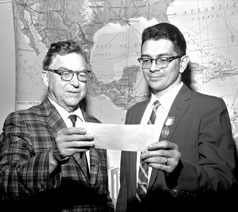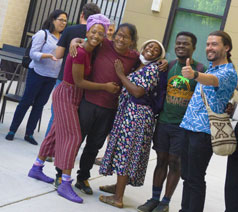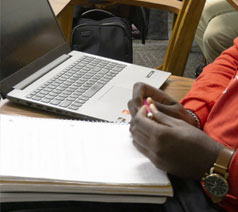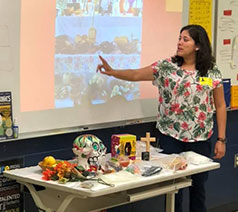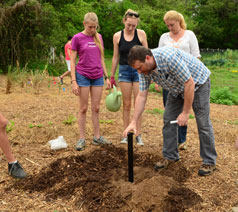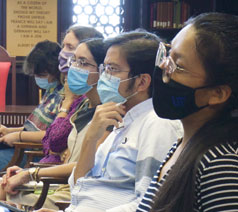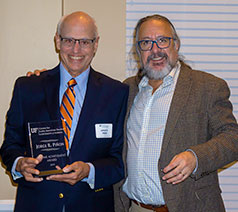Indigenous Rights, Environmental Change, and Development in South America’s Chaco: Day 2
Event Start Date: April 16, 2021 11:00 AM
Event End Date: April 16, 2021 5:45 PM
.
69th Annual Conference
Indigenous Rights, Environmental Change, and Development in South America’s Chaco
Click here to register for Day 2 of the 69th Annual Conference
Friday, April 16, 2021 | 11:00 am - 5:45 pm
Day 2 | Reimagining the Gran Chaco: Identities, politics, and the environment” book preview
*Please note some presentations will be in Spanish.
Presentation schedule
“Reimagining the Gran Chaco: Identities, politics, and the environment” book preview
*Sessions with asterisk denote presentation in Spanish.
| Session | Time | Presentation | Speaker |
|---|---|---|---|
| Session 1 | 11:00 - 11:15 am ET | Opening remarks | Joel Correia, Carlos de la Torre, Silvia Hirsch, Paola Canova, Mercedes Biocca |
| 11:15 - 11:30 am ET | The rise and fall of an Indigenous homeland: The Itiyuro River Basin in Argentina | Federico Bossert | |
| 11:30 - 11:45 am ET | Was the Chiriguano a colonial fabrication? Linguistic arguments for rethinking Guaraní and Chané histories in the Chaco | Bret Gustafson | |
| 11:45 am - 12:00 pm ET | Ayoreo women and access to health care: Negotiating the multicultural reform of the state in Paraguay* | Paola Canova | |
| 12:00 - 12:15 pm ET | Cosmology of development: Humanitarian narratives and missionary work in the Argentine Gran Chaco* | César Ceriani Cernadas | |
| 12:15 -12:45 pm ET | Discussion and debate | All | |
| BREAK | 12:45 - 1:00 pm ET | BREAK | BREAK |
| Session 2 | 1:00 - 1:05 pm ET | Brief introduction | Joel Correia |
| 1:05 - 1:20 pm ET | The Guaraní people's struggle for Indigenous autonomy in Bolivia | Nancy Postero | |
| 1:20 - 1:35 pm ET | Between resistance and acquiescence: Experiences of agrarian transformation in two indigenous communities in the Chaco province, Argentina* | Mercedes Biocca | |
| 1:35 - 1:50 pm ET | Infrastructures of settler colonialism: Geographies of violence, Indigenous labor, and marginal resistance in Paraguay's Chaco | Joel E. Correia | |
| 1:50 - 2:05 pm ET | Tense Territories: Negotiating natural gas in Weenhayek society | Denise Humphreys Bebbington and Guido Cortez | |
| 2:05 - 2:35 pm ET | Discussion and debate | All | |
| BREAK | 2:35 - 3:00 pm ET | BREAK | BREAK |
| Session 3 | 3:00 - 3:05 pm ET | Brief introduction | Joel Correia |
| 3:05 - 3:20 pm ET | Death ritual as ethnopoeisis: A farewell to an Angaité shaman* | Rodrigo Villagra-Carron | |
| 3:20 - 3:35 pm ET | Los relatos enlhet, portadores de la memoria del pueblo* | Hannes Kalisch | |
| 3:35 - 3:50 pm ET | Multiterritoriality and the Tapiete trinational experience in the Chaco | Silvia Hirsch | |
| 3:50 - 4:05 pm ET | The contested terrain of the Gran Chaco | Gastón Gordillo | |
| 4:05 - 4:45 pm ET | Discussion and debate | All | |
| Happy hour | 4:45 - 5:45 pm ET | Happy hour with live music and conversation! | All, with music by Welson Temura |
How to attend
Join us on Zoom by registering at this link. The sessions will also be broadcast live on the Center's YouTube channel.
Please note Sessions 1-3 will be recorded. The Happy Hour session will not be broadcast on YouTube or recorded.
Book preorder discount
Preorder “Reimagining the Gran Chaco: Identities Politics, and the Environment in South America” with code LASA21 to receive a discount! Paperback $28, hardcover $50, plus free shipping. Offer expires June 30, 2021. Order here.
Event Description
Join us April 15-16 to meet with frontline actors and academics who will share their perspectives on the most pressing contemporary social and environmental issues in South America’s Gran Chaco.
The Gran Chaco is one of Latin America’s most threatened forest ecosystems. Global demand for beef, soybeans, and hydrocarbons are driving a multi-billion dollar infrastructure boom, deforestation, and new migration dynamics across the region. As a result, the Chaco been the site of landmark Indigenous land rights cases, profound social change, and enduring efforts to conserve its threatened landscapes and falling forests.
During this two-day series of round-table discussion and presentations, Indigenous leaders, human rights advocates, conservation organizations, and researchers from Bolivia, Paraguay, and Argentina will share grounded perspectives from across the region and consider its future.
Click here for information about Day 1 of this conference.
Speaker biographies
Denise Bebbington (PhD in development policy and management) is a research associate professor at Clark University. In her research she has explored the political ecology of natural gas and the implications of the gas economy for both indigenous peoples and regional societies, the dynamics of socioenvironmental conflict, and mobilization linked to natural resource extraction and large-scale infrastructure investments in Latin America. She is coauthor with Anthony Bebbington, Abdul-Gafaru Abdulai,Marja Hinfelaar, and Cynthia Sanborn of Governing Extractive Industries: Politics, Histories, Ideas (Oxford, 2018).
Mercedes Biocca (PhD in sociology), is an associate researcher at the Escuela Interdisciplinaria de Altos Estudios Sociales, Universidad de San Martín, Argentina. Her research has been published in journals such as Tipití: Journal of the Society for the Anthropology of Lowland South America and Población y Sociedad. Her research focuses on rural issues associated with extractivism and the relations between indigenous peoples and the state in contexts of dispossession.
Federico Bossert (PhD in anthropology) is a researcher at CONICET (Consejo Nacional de Investigaciones Científicas y Técnicas) and the Instituto de Ciencias Antropológicas, Universidad de Buenos Aires. His research has been published in journals such as Anthropos, Población y Sociedad, and Journal de la Société des Americanistes. His research focuses on social organization, interethnic relations, ethnohistory, the Andean foothills, and the Chaco region.
Paola Canova (PhD in anthropology) is an associate professor in the Anthropology Department and Institute for Latin American Studies, University of Texas at Austin. She is the author of Frontier Economies: An Intimate Ethnography of Ayoreo Women in Paraguay’s Chaco (University of Texas Press, 2020). Her research interests include the political ecology of the Chaco, gender and sexuality, indigenous urbanity, and indigenous-state relations.
César Ceriani Cernadas (PhD in anthropology) is a researcher at CONICET (Consejo Nacional de Investigaciones Científicas y Técnicas) and a professor at FLACSO (Facultad Latinoamericana de Ciencias Sociales). He is the author of Nuestros hermanos lamanitas and los evangelios chaqueños: Misiones y estrategias indigenas en el siglo XX (Biblos,2008). His research focuses on religious missions among Chaco indigenous groups and native forms of religious life.
Joel Correia (PhD in geography) is an assistant professor at the Center for Latin American Studies and faculty member in the Tropical Conservation and Development Program at the Department of Geography and the American Indian and Indigenous Studies Program, University of Florida. His research has been published in Geoforum, The Journal of Peasant Studies, The Journal of Latin American Geography, and Erasmus Law Review, among others. In his research he investigates the intersections of Indigenous politics, land rights, socioenvironmental (in)justice, and law in the context of extractive development and Latin America, with a particular focus on Paraguay.
Guido Cortez (BA in sociology) is an executive director of the Centro de Estudios Regionales de Tarija, Bolivia. His research focuses on the relations between organizational processes and socioeconomic development in indigenous cultures of the Chaco. His research has been published in journals such as World Development and is author of the chapter “Social Change in the Weenhayek People in the Last One Hundred Years” in Definiciones étnicas, organización social y estrategias políticas en el Chaco y la Chiquitanía, edited by Isabelle Combès (Instituto Francés de Estudios Andinos,2006).
Gastón Gordillo (PhD in anthropology) is a professor and researcher at the University of British Columbia. He is the author of Rubble the Afterlife of Destruction (Duke University Press, 2014) and Landscapes of Devils and Tensions of Place and Memory in the Argentine Chaco(Duke University Press,2004). His research focus is the materiality of space, violence, critical theory, and resistance to agribusiness, particularly in the Chaco area.
Bret Gustafson (PhD in anthropology) is a professor at Washington University at St. Louis. He is the author of New Languages of the State: Indigenous Resurgence and the Politics of Knowledge in Bolivia (Duke University Press, 2009) and coeditor with Nicole Fabricant of Remapping Bolivia: Resources, Territory and Indigeneity in a Plurinational State(School for Advanced Research Press Santa Fe, 2011). His research focuses on the anthropology of politics, development, gas development, and indigenous intercultural education.
Hannes Kalisch (BA in linguistics) is an independent researcher and founder of the Indigenous Working Group Nengvaanemkeskama Nempayvaam Enlhet, in Paraguay. He is the author of No llores: La historia enlhet de la Guerra del Chaco, (Centro de Artes Visuales/Museo del Barro, Nengvaanemkeskama Nempayvaam Enlhet/ServiLibro,2018) a contributor to The Paraguay Reader: History, Culture, Politics, edited by Peter Lambert and Andrew Nickson, (Duke University Press,2012) and coauthor with Ernesto Unruh of Wie Schön Ist Deine Stimme(Epubli, 2014).
Silvia Hirsch (PhD in anthropology) is a professor and researcher at the Escuela Interdisciplinaria de Altos Estudios Sociales, Universidad de San Martín, Argentina. She is the author of El pueblo tapiete de Argentina: Historia y cultura(Universidad de Buenos Aires,2006); editor of Mujeres indigenas de la Argentina: Cultura, trabajo y poder (Biblos, 2008); and coeditor of Educación intercultural bilingüe en la Argentina (with Adriana Serrudo(Noveduc,2010)); Movilizaciones indígenas e identidades en disputa en la Argentina: Historias de invisibilización y re-emergencia with Gastón Gordillo (La Crujía,2010); and Salud pública y pueblos indígenas en la Argentina: Encuentros, tensiones e interculturalidad with Mariana Lorenzetti (UNSAM Edita,2016). Her research focuses on gender, ethnicity, borders, and health and education among indigenous peoples.
Nancy Postero (PhD in anthropology) is a professor at the University of California San Diego, codirector of the Human Rights Program at UC San Diego, and codirector of the International Institute at UC San Diego. She is the author of Now We Are Citizens, Indigenous Politics in Postmulticultural Bolivia (Standford University Press, 2007) and The Indigenous State: Race, Politics, and Performance in Plurinational Bolivia(University of California Press, 2017). Her areas of research are race, politics, and political economy among indigenous peoples.
Rodrigo Villagra Carron (PhD in social anthropology) is a lawyer, a researcher of the PRONII (National Incentive Programa for Researchers) at CONACYT (National Scientific and Technological Council), Paraguay, and a funder and associate researcher for the NGO Tierraviva, Paraguay. He is a lecturer of indigenous ethnology at the Universidad Federal de Integração Latino-Americana (UNILA), Foz de Iguaçu, Brazil. He is the author of The Two Shamans and the Owner of the Cattle: Alterity, Storytelling, and Shamanism among the Angaite of the Paraguayan Chaco (CEADUC,2010) and Meike makha valayo:No habían Paraguayos. Reflexiones etnográficas en torno a los angaité del Chaco (CEADUC,2015). His research concentrates on indigenous peoples’ territoriality, shamanism, interethnic relationships, and applied and legal anthropology.
Sponsored by
UF Center for Latin American Studies
with
UF International Center
UF Office of Research
Tropical Conservation and Development Program
Master of Sustainable Development Practice
UF Department of Anthropology
University of Arizona Center for Latin American Studies

